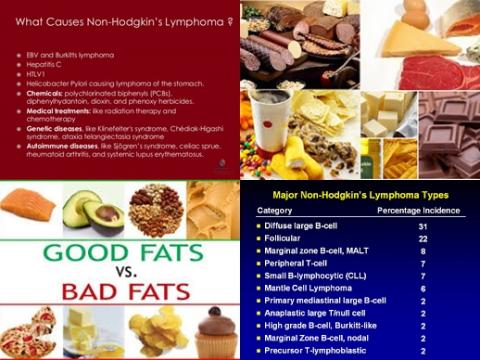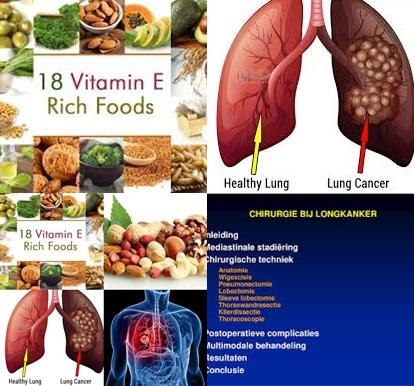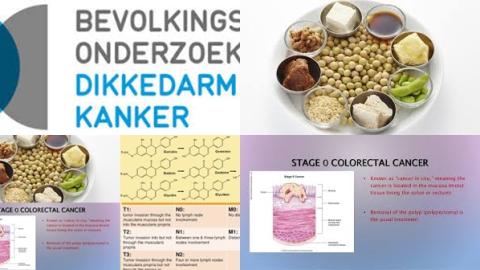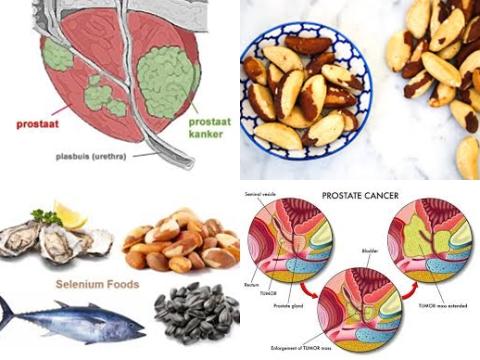A high total fat consumption increases non-Hodgkin's lymphoma

Objectives:
Many studies suggest that high-fat diets are linked to the etiology of non-Hodgkin's lymphoma (NHL). However, the findings are inconsistent and therefore the association between fat and non-Hodgkin's lymphoma remains unclear. Therefore, this review article (meta-analysis) has been conducted.
Does a high fat dietary intake increase non-Hodgkin's lymphoma risk?
Study design:
This review article included two cohort studies and eight case-control studies.
The funnel plot revealed no evidence for publication bias.
Results and conclusions:
The investigators found a significant higher risk of 26% for non-Hodgkin's lymphoma for total fat consumption [RR = 1.26, 95% CI = 1.12-1.42]. Significant because RR of 1 was not found in the 95% CI of 1.12 to 1.42. RR of 1 means no risk/association.
The investigators found subgroup analysis showed a significant higher risk of 41% for diffuse large B-cell lymphoma for total fat consumption [RR = 1.41, 95% CI = 1.08-1.84]. However, there was no significant association between total fat consumption and increase risk of follicular lymphoma [RR = 1.21, 95% CI = 0.97-1.52], small lymphocytic lymphoma/chronic lymphocytic leukemia [RR = 0.91, 95% CI = 0.68-1.23] nor with T cell lymphoma [RR = 1.12, 95% CI = 0.60-2.09].
No significant because RR of 1 was found in the 95% CI of 0.60 to 2.09. RR of 1 means no risk/association.
The investigators concluded that total fat consumption increases non-Hodgkin's lymphoma; especially diffuse large B-cell lymphoma.
Original title:
Dietary Fat Consumption and Non-Hodgkin's Lymphoma Risk: A Meta-analysis by Han TJ, Li JS, [...], Xu HZ.
Link:
https://www.ncbi.nlm.nih.gov/pubmed/28094569
Additional information of El Mondo:
Find more information/studies on fat and cancer right here.
Lymphoma is the most common blood cancer. The two main forms of lymphoma are Hodgkin lymphoma and non-Hodgkin lymphoma (NHL). The human body has two main types of lymphocytes that can develop into lymphomas:
- B lymphocytes (B cells) and;
- T lymphocytes (T cells).
B-cell lymphomas are much more common than T-cell lymphomas and account for approximately 85 percent of all non-Hodgkin lymphomas. Diffuse large B cell lymphomas (DLBCLs) are the commonest subtype of non-Hodgkin's lymphoma. They constitute about 30 to 40% of adult non-Hodgkin's lymphoma.
A high total fat consumption corresponds to a diet with >35 En% fat and/or >10 En% saturated fat. A diet with >35 En% fat is a diet with a lot of products/meals providing >35 En% fat.


